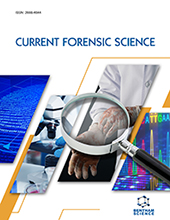Abstract
Forensic science in India has evolved over 100 years, with the first official laboratory being the Calcutta Forensic Science Laboratory in Kolkata founded in 1952. Modernization has led to the establishment of numerous central, state, and regional forensic laboratories and advancements in technology such as DNA profiling, pathology, forensic toxicology, and forensic anthropology. As the need for forensic education in India increases, educational institutions and universities have started offering forensic science as a subject. India has collaborated with international forensic organizations to stay updated on global developments. Contemporary studies in forensic sciences are crucial for adapting to technological advancements, addressing emerging crimes, improving DNA analysis, promoting interdisciplinary approaches, and maintaining quality assurance and standards. Forensic science plays a significant role in the humanitarian efforts, including the identification of missing people and victims of mass disasters. Advanced imaging techniques are crucial in forensic investigations. Indian forensic science education is divided into undergraduate and postgraduate programs, offering bachelor's degrees and specialized courses in areas like forensic toxicology, DNA analysis, and digital forensics.








